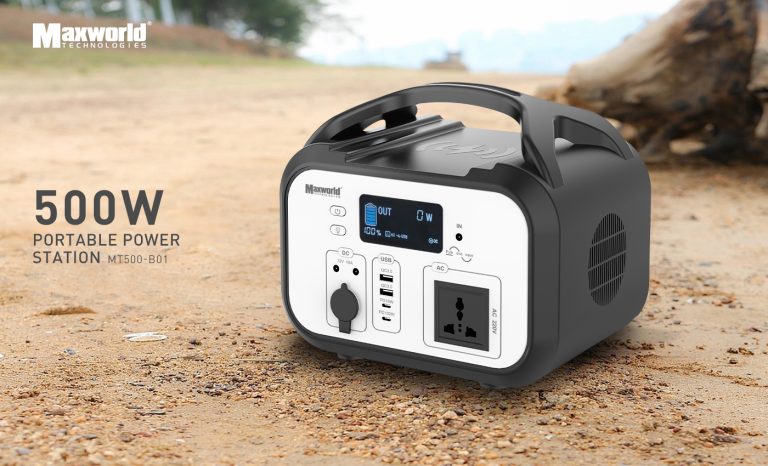Introduction
Portable medical devices are revolutionizing healthcare, offering critical diagnostic, therapeutic, and monitoring capabilities outside traditional medical settings. These devices require reliable, long-lasting power sources to ensure uninterrupted operation, and lithium batteries have emerged as the go-to solution. This article explores the role of lithium batteries in powering portable medical devices, their advantages, challenges, and future trends in this vital sector.

The Importance of Portable Medical Devices
Enhancing Patient Mobility
Portable medical devices allow patients to move freely and live more normal lives while receiving necessary medical care. Devices such as insulin pumps, portable oxygen concentrators, and heart monitors can be used at home, reducing the need for frequent hospital visits.
Improving Emergency Response
In emergency situations, portable medical devices provide critical care on the move. Defibrillators, portable ventilators, and diagnostic equipment are essential tools for paramedics and emergency medical technicians.
Remote Monitoring and Telehealth
Portable medical devices enable remote monitoring of patients’ health, allowing healthcare providers to track vital signs and other health metrics in real-time. This facilitates timely medical interventions and supports the growing field of telehealth.
Why Lithium Batteries?
High Energy Density
Lithium batteries have a high energy density, meaning they can store more energy in a smaller and lighter package compared to other battery types. This is crucial for portable medical devices that need to be lightweight and compact.
Long Battery Life
Lithium batteries offer long operational life, reducing the frequency of battery replacements. This is especially important for medical devices that need to operate continuously or for extended periods between charges.
Fast Charging
Lithium batteries support fast charging, ensuring that portable medical devices are quickly ready for use. This is vital in medical emergencies where every second counts.
Reliability
Lithium batteries are known for their reliability and consistent performance. They can deliver stable power output, which is critical for the precise and accurate functioning of medical devices.
Applications of Lithium Batteries in Portable Medical Devices
Insulin Pumps
Insulin pumps are essential for diabetes management, delivering continuous insulin doses to patients. Lithium batteries provide the reliable and long-lasting power needed for these life-saving devices.
Portable Oxygen Concentrators
Portable oxygen concentrators are used by patients with respiratory conditions to ensure a continuous supply of oxygen. Lithium batteries allow these devices to operate for extended periods, enhancing patient mobility and quality of life.
Cardiac Monitors
Cardiac monitors track heart activity and detect abnormalities such as arrhythmias. Lithium batteries power these monitors, ensuring they function reliably and continuously to provide critical health data.
Defibrillators
Portable defibrillators are life-saving devices used to restore normal heart rhythm during cardiac arrest. Lithium batteries ensure that these devices are always ready for use in emergencies, with sufficient power to deliver the necessary shocks.
Diagnostic Devices
Portable diagnostic devices, such as blood glucose meters, pulse oximeters, and portable ultrasound machines, rely on lithium batteries for their operation. The high energy density and reliability of lithium batteries support the accurate and efficient functioning of these devices.
Advantages of Lithium Batteries in Portable Medical Devices
Lightweight and Compact
The lightweight and compact nature of lithium batteries makes them ideal for portable medical devices that need to be easily carried by patients or healthcare providers.
High Power Output
Lithium batteries can deliver high power output, which is necessary for devices that require significant energy, such as defibrillators and portable oxygen concentrators.
Low Self-Discharge Rate
Lithium batteries have a low self-discharge rate, meaning they retain their charge for longer periods when not in use. This ensures that medical devices are always ready for operation when needed.
Safety Features
Modern lithium batteries are equipped with safety features such as overcharge protection, short circuit protection, and thermal management systems. These features enhance the safety of medical devices powered by lithium batteries.
Challenges of Lithium Batteries in Portable Medical Devices
Cost
Lithium batteries are more expensive than other battery types, which can increase the overall cost of portable medical devices. However, their superior performance and longevity often justify the higher initial investment.
Thermal Runaway
Thermal runaway is a potential risk with lithium batteries, where overheating can lead to a chain reaction causing the battery to catch fire or explode. Advanced battery management systems and stringent safety standards are essential to mitigate this risk.
Limited Availability of Materials
The production of lithium batteries depends on the availability of materials such as lithium, cobalt, and nickel. Supply chain disruptions and material shortages can impact the production and cost of lithium batteries.
Future Trends
Improved Battery Chemistry
Research is ongoing to develop new lithium battery chemistries that offer higher energy densities, longer lifespans, and enhanced safety. Advances in solid-state lithium batteries, for example, hold promise for even better performance and safety.
Wireless Charging
Wireless charging technology is being integrated into portable medical devices, allowing for more convenient and hassle-free recharging. This technology can further enhance the usability and reliability of devices powered by lithium batteries.
Enhanced Battery Management Systems
Future developments in battery management systems will focus on improving the safety, efficiency, and longevity of lithium batteries. These systems will provide better monitoring and control of battery performance, ensuring optimal operation of medical devices.
Recycling and Sustainability
As the demand for lithium batteries grows, efforts are being made to improve recycling processes and develop more sustainable battery production methods. This will help reduce the environmental impact and ensure the long-term availability of materials.
Conclusion
Lithium batteries play a crucial role in powering portable medical devices, providing reliable, long-lasting, and lightweight energy solutions. Their high energy density, fast charging capabilities, and consistent performance make them the preferred choice for a wide range of medical applications. While challenges such as cost and thermal management exist, ongoing advancements in battery technology and management systems are expected to further enhance their suitability for medical devices. As portable medical devices continue to transform healthcare, lithium batteries will remain at the forefront, ensuring that these life-saving tools operate efficiently and reliably.

